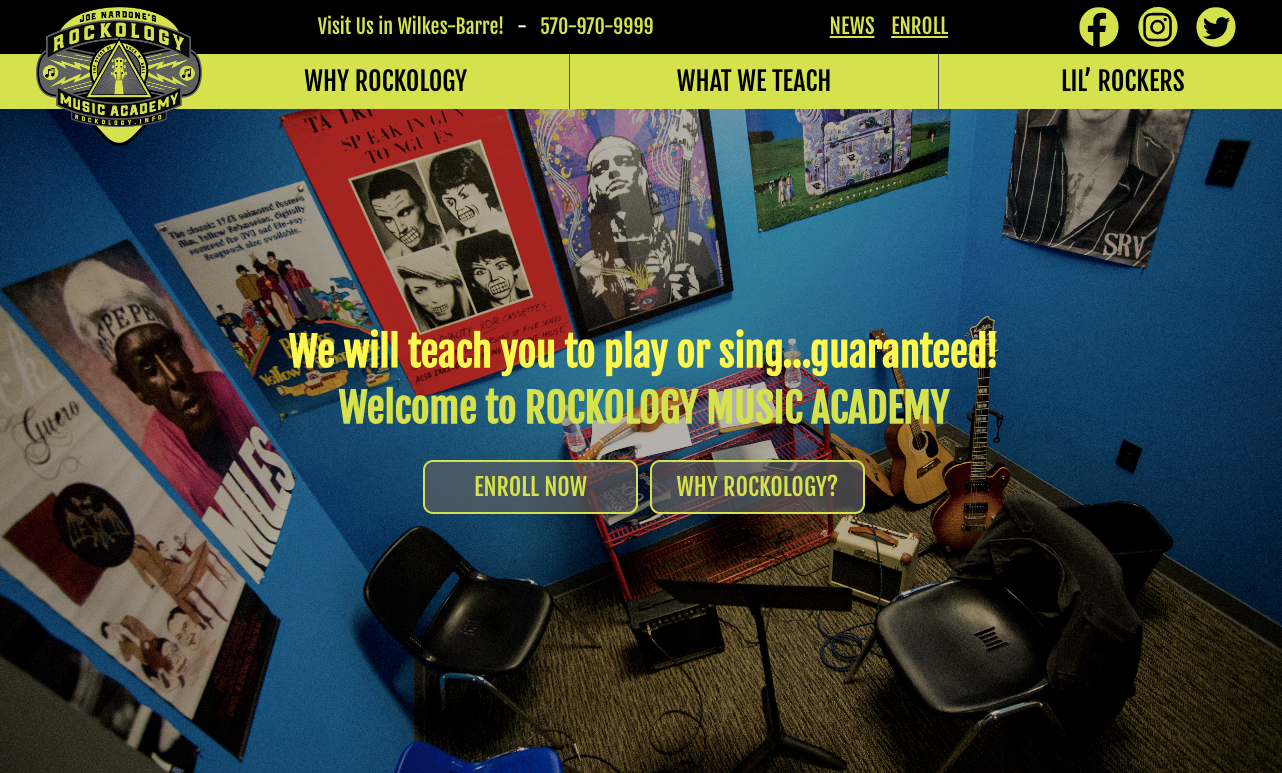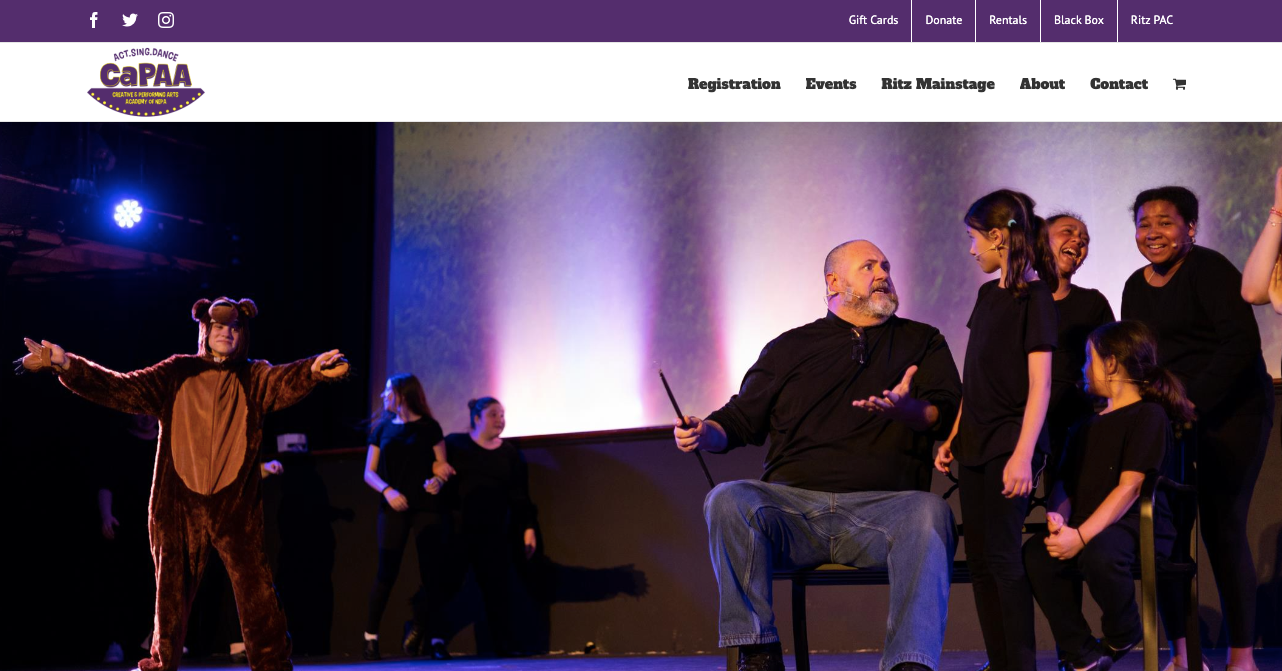If you’re looking to enhance your vocal skills and improve your singing ability, Scranton, Pennsylvania is home to some of the best singing lessons in the area. Whether you’re a beginner looking to develop your vocal range, or an experienced singer seeking to refine your technique, the following list highlights the 10 best singing lessons available in Scranton.
From private lessons to group sessions, there’s an array of options to choose from. Each program offers a unique approach to vocal training, and caters to singers of all ages and skill levels. With years of experience and expertise, the instructors on this list have a track record of producing successful singers.
In these lessons, you can expect to receive personalized instruction, focusing on the areas you want to improve upon. You’ll learn proper breathing techniques, vocal warm-ups, and exercises to improve your pitch and range. Additionally, many programs offer performance opportunities, which allow students to showcase their talents in front of an audience.
Whether you’re looking to pursue a career in singing, or simply want to improve your skills for personal enjoyment, investing in singing lessons is a great way to reach your goals. The following list provides a great starting point for finding the best singing lessons in Scranton, Pennsylvania.
1. Scranton Music Academy

Website: https://www.scrantonmusiclessons.com/
Address: 916 Oak St, Scranton, PA 18508
Scranton Music Academy is a top-notch music school located in Scranton, Pennsylvania. The academy offers a wide range of music lessons including singing, piano, guitar, and drums. Their singing lessons are designed to help students develop strong vocal techniques, improve pitch accuracy, and enhance their overall musicality. They have experienced and friendly instructors who provide personalized instruction to each student, making sure to address individual needs and goals. The academy offers both private and group lessons for all ages and skill levels.
The facility at Scranton Music Academy is equipped with state-of-the-art equipment, making the learning experience enjoyable and efficient. The academy has a strong emphasis on performance, allowing students to showcase their talents in front of an audience. Their commitment to excellence and dedication to their students has made them one of the best music schools in Scranton. If you’re looking to improve your singing skills, Scranton Music Academy is definitely worth checking out.
2. Rockology Music Academy

Website: http://www.rockology.info/
Address: 222 Wyoming Ave Ritz Theater & Performing Arts Center, Scranton, PA 18503
Rockology Music Academy, located in the Ritz Theater and Performing Arts Center in Scranton, Pennsylvania, is a premier music school offering top-notch vocal training. The academy offers singing lessons for all ages and skill levels, focusing on developing proper breathing techniques, pitch accuracy, and tone quality. Their instructors are experienced musicians who have a passion for teaching and are dedicated to helping their students achieve their goals.
The academy provides a personalized approach to vocal training, with both private and group lessons available. The school also offers a wide range of musical programs including guitar, piano, and drum lessons. Rockology Music Academy places a strong emphasis on performance, offering numerous opportunities for students to showcase their talents in front of an audience.
The facility is equipped with high-quality equipment, making the learning experience enjoyable and efficient. If you’re looking for a comprehensive music school that offers excellent singing lessons in Scranton, Rockology Music Academy is definitely worth considering.
3. Creative and Performing Arts Academy of NEPA

Website: http://www.capaa.org/
Address: 222 Wyoming Ave, Scranton, PA 18503
The Creative and Performing Arts Academy of NEPA is a prestigious music school located in Scranton, Pennsylvania. They offer an array of musical programs including singing lessons for students of all ages and skill levels. Their experienced instructors provide personalized instruction, focusing on improving vocal technique, pitch accuracy, and overall musicianship.
The academy offers both private and group lessons, giving students the flexibility to choose the best learning environment for their needs. The school also provides performance opportunities throughout the year, allowing students to showcase their talents in front of an audience.
In addition to their singing lessons, the Creative and Performing Arts Academy of NEPA also offers programs in dance, theater, and fine arts. Their state-of-the-art facility is equipped with high-quality equipment, making the learning experience enjoyable and efficient. If you’re looking for a comprehensive music school that offers excellent singing lessons in Scranton, the Creative and Performing Arts Academy of NEPA is definitely worth exploring.
“Tips for Learning How to Sing”
Acting is an art that demands an actor to embody a character and convincingly convey their thoughts and emotions to the audience. While there are various tools that actors use to achieve this, one of the most important is their voice. An actor’s voice is a powerful tool that can create a connection with the audience, convey emotions and feelings, and bring a character to life. Therefore, vocal training is an essential aspect of an actor’s education.
In this article, we will explore various techniques that actors can use to develop a versatile and expressive voice.
Breathing Techniques
Breathing is a fundamental aspect of vocal production, and actors need to master this skill to create a strong and flexible voice. To achieve this, actors can use several breathing techniques, such as the diaphragmatic breathing technique, which involves inhaling deeply and slowly through the nose, expanding the belly, and exhaling slowly through the mouth. This technique helps to control the breath, which is essential for projecting the voice and creating a range of vocal dynamics.
Resonance and Placement
Another essential technique for vocal training is resonance and placement. Resonance refers to the quality of sound produced by the voice, while placement is the act of directing the sound to specific parts of the body. By combining these two techniques, actors can create a rich, expressive voice that resonates with the audience.
To develop resonance, actors can practice humming exercises, which involve making a low, sustained sound while placing their hand on their chest or throat to feel the vibrations. This exercise helps actors to explore the range of resonance in their voice and develop a deeper, more resonant tone.
To work on placement, actors can use exercises that involve directing the sound to different parts of the body, such as the front of the face, the back of the head, or the chest. These exercises help actors to develop a more versatile voice that can be projected to different parts of the audience.
Vocal Range
An actor’s vocal range is another crucial aspect of vocal training. A wide range of vocal abilities can help an actor to express a wider range of emotions and create a more nuanced performance. To develop their vocal range, actors can practice exercises that involve singing or speaking in different registers, such as the head voice or the chest voice.
Another technique that actors can use to develop their vocal range is vocal fry. Vocal fry is a technique that involves producing a low, creaky sound by vibrating the vocal cords slowly. This technique can help actors to strengthen their voice and develop a lower vocal range.
Diction and Articulation
Diction and articulation are also essential aspects of vocal training. Actors need to be able to speak clearly and distinctly, so that the audience can understand them. To develop good diction, actors can practice exercises that involve articulating specific sounds and words, such as tongue twisters. These exercises help actors to develop their enunciation and pronunciation skills.
Another technique that actors can use to improve their diction and articulation is the use of consonant drills. Consonant drills involve speaking words that contain a lot of consonant sounds, such as “st” or “ch,” which can help actors to develop their articulation skills and improve their clarity of speech.
Emotional Connection
Finally, an actor’s vocal training should also focus on emotional connection. An actor’s voice should not only convey words but also emotions and feelings. To achieve this, actors can practice exercises that involve speaking or singing with emotion, such as reciting a monologue or singing a song.
Actors can also use their voice to express emotions by varying their pitch, tone, and volume. For example, a high-pitched, fast-talking voice can convey excitement, while a low, slow voice can convey sadness or seriousness. By varying their vocal dynamics, actors can create a more expressive and engaging performance that connects with the audience on an emotional level.
In addition to exercises that focus on emotional connection, actors can also work on their vocal expression by practicing improvisation. Improvisation involves creating dialogue and scenes on the spot, which requires actors to think quickly and react emotionally in real-time. By practicing improvisation, actors can develop their ability to express emotions through their voice and create a more natural and believable performance.
Conclusion
Vocal training is an essential aspect of an actor’s education, and there are various techniques that actors can use to develop a versatile and expressive voice. Breathing techniques, resonance and placement, vocal range, diction and articulation, and emotional connection are all crucial aspects of vocal training that can help actors to create a more powerful and engaging performance. By dedicating time and effort to vocal training, actors can develop a voice that resonates with the audience and brings their characters to life in a more convincing and authentic way.

